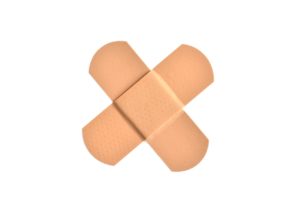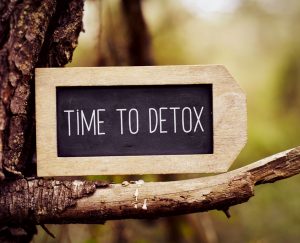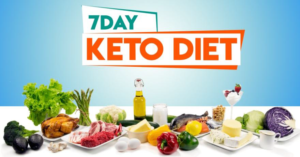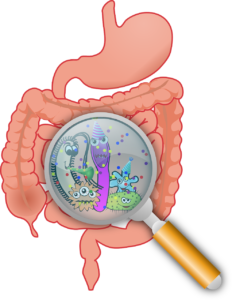How to balance Hormones naturally
At our clinic we often treat individuals who have an imbalance in hormones.
Using ways to balance hormones naturally is a way to treat common hormonal imbalances such as PCOS, irregular periods, menstrual symptoms, fertility issues and severe menopausal symptoms.
We find that factors such as genetics, stress and environmental toxins are often involved in disrupting hormonal balance. This then leads to a number of health issues.
In treatment, the fact that diet plays an important role in maintaining hormonal balance is often missed.
If we adopt a holistic approach to nutrition we can positively influence hormonal balance, and thus overall well-being and vitality.
In this post, we look at how to balance hormones naturally with food, because this is a way to balance hormones that is at your fingertips.
Coming to Grips with Hormonal Balance
Hormones act as messengers in the body.
They regulate various functions such as metabolism, mood, reproduction, growth and sleep.
When in balance, hormones allow us to experience vitality and emotional stability.
However, when there is a hormones imbalance, it can lead to a number of health issues. These include weight gain, fatigue, mood swings, and even reproductive disorders. These are issues imortant to Women’ health.
In this post, we’ll go over how you can use the power of nutrition to support good hormone health.
Understanding Hormonal Imbalance
Before looking into dietary ways for balancing hormones, we’ll look at what hormonal imbalance means.
Hormonal imbalance occurs when there is either too much or too little of a particular hormone circulating in the body.|
Common hormonal imbalances in women include oestrogen dominance, insulin resistance, thyroid disorders, and adrenal fatigue.
The Holistic Approach
A holistic approach to balancing hormones, takes into account that body, mind and spirit are connected.
It includes diet and lifestyle factors such as stress management, exercise, sleep and the environment.
This way we are able to address the root cause of hormonal imbalances, rather than just the symptoms.
The Role of Diet in Hormonal Health
Diet plays a key role in hormone production, metabolism, and regulation.
The good news is that you can support your body’s natural hormone balance by including nutrient-dense foods in your diet.
As well as this healthy eating habits are also beneficial.
And so, including whole unprocessed foods provide essential vitamins, minerals, antioxidants and phytonutrients that support hormone production and metabolism. As well as this, excess hormones are eliminated from the body.
Nutrition Strategies for Hormonal Balance
- Healthy Fats: Include healthy fats in your diet.
These are in the form of Omega-3 fatty acids, found in fatty fish, flaxseeds, and walnuts. These help reduce inflammation and support hormonal production.
Also, do include sources of monounsaturated fats, such as avocados, olive oil, and nuts, to promote hormone synthesis.
- Protein: Protein provides the amino acid building blocks for hormone production and also helps regulate blood sugar levels.
Choosing sources of protein such as lean meat, poultry, fish, eggs, tofu, and legumes also support muscle growth and repair.
- Fibre: A diet rich in fibre promotes digestive health and helps the elimination of excess hormones. It especially helps regulate oestrogen levels.
Include plenty of fruits, vegetables, whole grains, and legumes in your meals to support balanced hormone metabolism.
- Antioxidants: Antioxidants help protect against oxidative stress and inflammation. Both of these can disrupt hormone balance.
Include colourful fruits and vegetables, such as berries,citrus fruits, cruciferous vegetables, leafy greens, and bell peppers, into your diet to boost your antioxidant intake. These also contain phytonutrients.
Leafy greens are rich in magnesium.. - Vitamins and Minerals: Certain vitamins and minerals play specific roles in hormone synthesis and regulation.
Vitamin D, for example, is crucial for maintaining optimal levels of sex hormones, while magnesium supports insulin sensitivity stress management and thyroid function.
Include a variety of nutrient-rich foods in your diet to ensure you’re getting all the vitamins and minerals your body needs.
Hormone -Balancing Foods and diet tips.
- Cruciferous Vegetables: Broccoli, cauliflower, kale, and Brussels sprouts contain compounds that support oestrogen metabolism and detoxification.
These vegetables can help reduce oestrogen dominance and promote hormonal balance.
- Berries: Berries are rich in antioxidants and fibre, making them great for hormone health.
Blueberries, raspberries, and strawberries can help reduce inflammation and support overall hormonal balance.
- Fatty Fish: Salmon, mackerel, and sardines are rich in omega-3 fatty acids. These have anti-inflammatory properties and support hormone synthesis.
Aim to include fatty fish in your diet two to three times per week to reap the benefits.
- Probiotic Foods: Fermented foods such as yogurt, kefir, sauerkraut, and kimchi contain beneficial bacteria that support gut health and hormone metabolism.
Maintaining a healthy gut microbiome is essential for optimal hormone balance.
- Whole Grains: Whole grains such as oats, quinoa, and brown rice provide complex carbohydrates and fibre. These can support hormone balance. Choose whole grains over refined grains to maximise their nutritional benefits.
An extra word on Gut Health:
It is wise to look at the importance of good Gut health, because the Gut Microbiome plays an important role in hormone regulation, digestion, as well as immune function.
So not only do we need the probiotic foods as mentioned above, but we also need to include prebiotic foods such as onions, garlic, leeks, asparagus and bananas to feed gut microbes.
We also need to limit processed foods and artificial sweeteners.
When needing antibiotics we should take probiotics to lessen disruption of the gut microbiota.
Environmental Influences:
Toxic chemicals can be found in food, water, personal care products and household cleaners.
These can affect endocrine functioning and hormone signalling.
It is wise to minimise the affect of these.
- Choose organic produce when able to. This will help reduce the affect of pesticides and herbicides.
- Filtering drinking water and ventilating indoor spaces can limit exposure to air pollutants and so reduce the influence of toxins.
Balancing hormones with Lifestyle changes
In addition to diet, certain lifestyle factors can influence hormone health.
Managing stress, getting adequate sleep, and staying physically active are all important for maintaining hormonal balance.
High levels of stress are not only able to affect cortisol levels, but can throw other hormones out of balance as well.
There are appropriate natural remedies that can help you cope with stress.
Also, finding healthy coping mechanisms such as meditation, yoga, or deep breathing exercises is beneficial.
Aim for 7-9 hours of quality sleep each night to support healthy hormone production and regulation.
Regular exercise, such as brisk walking, cycling, or strength training, reduce inflammation, and support overall hormone health.
Consulting with a Nutritionist
While dietary and lifestyle changes can be beneficial for supporting hormone balance, it is recommended to consult with a qualified healthcare professional, such as a nutritionist or naturopath, before making significant changes to your diet or lifestyle.
A nutritionist can assess your individual needs, develop a personalised nutrition plan, and provide guidance and support as you work towards achieving hormonal balance.
In conclusion,
Achieving hormonal balance requires a multifaceted approach.
– Diet plays a critical role in hormone health, and incorporating nutrient-dense foods and healthy eating habits can help support optimal hormone balance.
By focusing on whole, unprocessed foods rich in essential nutrients, you can nourish your body and promote overall well-being.
- Remember to prioritise lifestyle factors such as stress management, sleep, and physical activity, as these also play a crucial role in maintaining hormonal balance.
- Be wary of environmental factors as well.And do seek guidance from a qualified nutritionist or naturopath if you have symptoms related to hormonal disturbance or have concerns about your hormone health.
With the right approach, you can take control of your hormonal health and enjoy the benefits of vitality and resilience from within.


 It isn’t unusual for mental health, such as depression, stress, anxiety, adrenal fatigue, chronic fatigue
It isn’t unusual for mental health, such as depression, stress, anxiety, adrenal fatigue, chronic fatigue  Do you feel under pressure or stress more often than not? If you answered yes, then you probably
Do you feel under pressure or stress more often than not? If you answered yes, then you probably  Zinc, with all its important physiological uses, is a mineral many of us are unknowingly deficient in.
Zinc, with all its important physiological uses, is a mineral many of us are unknowingly deficient in. Antioxidants and anti-inflammation to prevent chronic disease
Antioxidants and anti-inflammation to prevent chronic disease Reduced or abnormal smell or taste
Reduced or abnormal smell or taste Water therapy has been used for centuries as a spiritual activity in sacred rivers such as the Ganges, utilising such techniques as neti (Sinus washing), steaming the body, sweating, enemas, saltwater emesis and drinking warm or mineralised water, all with the goal of detoxifying or purifying the body. The people of Japan have used medicinal bathing, utilising the volcanic waters with differing ionic content, all with different healing capabilities. Ancient Greece and Rome used Healing temples, Asclepieia, often sourced from forest and mountains springs as a hospital of sorts, claiming they held great healing energies.
Water therapy has been used for centuries as a spiritual activity in sacred rivers such as the Ganges, utilising such techniques as neti (Sinus washing), steaming the body, sweating, enemas, saltwater emesis and drinking warm or mineralised water, all with the goal of detoxifying or purifying the body. The people of Japan have used medicinal bathing, utilising the volcanic waters with differing ionic content, all with different healing capabilities. Ancient Greece and Rome used Healing temples, Asclepieia, often sourced from forest and mountains springs as a hospital of sorts, claiming they held great healing energies. 
 Local acute inflammation – such as a sprain, strain, injury or insect bite.
Local acute inflammation – such as a sprain, strain, injury or insect bite.  And since you may be wondering “is it safe to do our keto diet” let’s look further into what ketosis is and whether our Ketogenic diet could be right for you.
And since you may be wondering “is it safe to do our keto diet” let’s look further into what ketosis is and whether our Ketogenic diet could be right for you. Our ketogenic diet is quite different from a standard western diet, and different variations of the diet do exist. However, it consists of a specific balance of macronutrients, generally being:
Our ketogenic diet is quite different from a standard western diet, and different variations of the diet do exist. However, it consists of a specific balance of macronutrients, generally being: When you’re feeling tired, it is important to consider whether you have the nutrients required for optimal energy. If you’re not providing your body with the nutrients it needs, it can be hard to jump out of bed feeling refreshed. The energy powerhouses within your body are known as mitochondria; and are present in almost all of your cells. During a busy day, your mitochondria produce all of the energy you need, however, producing energy relies on a steady stream of nutrients. If your mitochondria do not receive adequate nutrition, they cannot perform at their best!
When you’re feeling tired, it is important to consider whether you have the nutrients required for optimal energy. If you’re not providing your body with the nutrients it needs, it can be hard to jump out of bed feeling refreshed. The energy powerhouses within your body are known as mitochondria; and are present in almost all of your cells. During a busy day, your mitochondria produce all of the energy you need, however, producing energy relies on a steady stream of nutrients. If your mitochondria do not receive adequate nutrition, they cannot perform at their best! Eat foods rich in unrefined and unprocessed carbohydrates, protein and fat; the primary ingredients for energy production.
Eat foods rich in unrefined and unprocessed carbohydrates, protein and fat; the primary ingredients for energy production. The identification of bowel toxicity followed by effective treatment is invaluable to many patients. Current dietary and lifestyle practices have produced an increasing number of health disorders caused by a malfunctioning digestive tract and toxicity that results from it. We start by looking at the causes of toxic bowel syndrome also referred to as Gut Toxicity.
The identification of bowel toxicity followed by effective treatment is invaluable to many patients. Current dietary and lifestyle practices have produced an increasing number of health disorders caused by a malfunctioning digestive tract and toxicity that results from it. We start by looking at the causes of toxic bowel syndrome also referred to as Gut Toxicity.